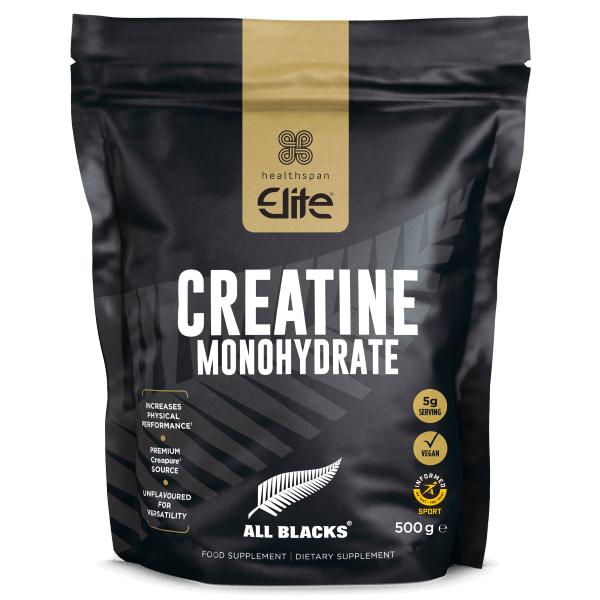Creatine can give your muscles an energy boost during intense exercise. Nutritionist Rob Hobson outlines the benefits.
What is creatine?
Creatine, or methylguanidine acetic acid, is a compound stored in our muscles that helps in the production of ATP – the compound that provides energy to bodily processes such as muscle contraction.
Creatine is mainly found in meat and fish, and is also produced in the body. It would be very difficult to obtain more than 3-4g of creatine a day from diet alone, and almost impossible for vegetarians or vegans.
What does creatine do?
Creatine can help with the production of ATP during maximum-effort exercise, such as sprints or intense muscular effort lasting between 5 and 10 seconds, and so maintain power output. It can also help recovery between exercise bouts.
This makes it suitable to improve performance in sports involving repeated sprints, such as rugby or football, and high-intensity bursts, like track or swim sprints.
Creatine can also help you train harder, through being able to do more work over a series of training sets.
"Creatine helps the players deal with the high-end training demands of an elite athlete, so we use this on a daily basis. I'm very happy that Healthspan Elite uses Creapure, as it provides the purest form of creatine."
Kat Darry, All Blacks Nutritionist
How to take creatine
Creatine monohydrate is the most common form of creatine supplement, and can increase muscular creatine levels by between 20 and 40 per cent depending on how much creatine is in the muscles to start with.
Suggested serving size is 5g of creatine, mixed with water or juice in a shaker.
When to take creatine
One approach is to load with creatine by taking four doses a day (making 20g of creatine total) for 5 days. You can then maintain creatine levels by continuing to take 5g per day.
Alternatively, taking 5g of creatine a day for 30 days can build up levels in the muscles gradually.
Is creatine bad for you?
There is no substantial evidence of negative effects from taking creatine for up to five years. Some athletes may put on 1-2kg of weight during the loading phase, due to more retention of water in the body. This could be a problem for endurance athletes or those competing in weight category sports.

Elite All Blacks Creatine Monohydrate
An ultra-pure source of creatine proven to increase your physical performance and intensity
- Improves physical performance in successive bursts of short-term, high-intensity exercise
- Micronised for easy mixing
- Developed in collaboration with the All Blacks
Find out more about creatine

Creatine: use in sport and exercise
Performance Nutritionist Wendy Martinson OBE explains what creatine is, how it's used in sport and if there are any side effects.








